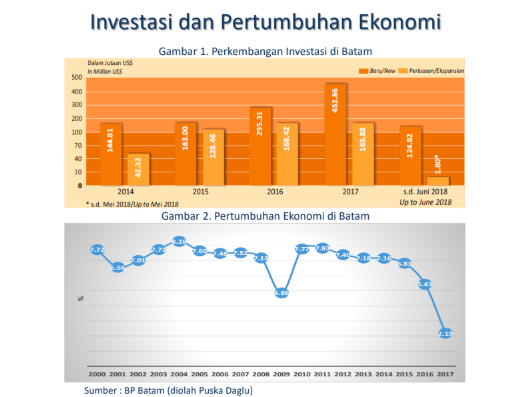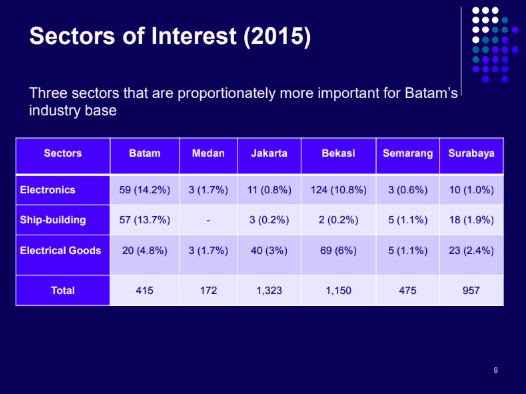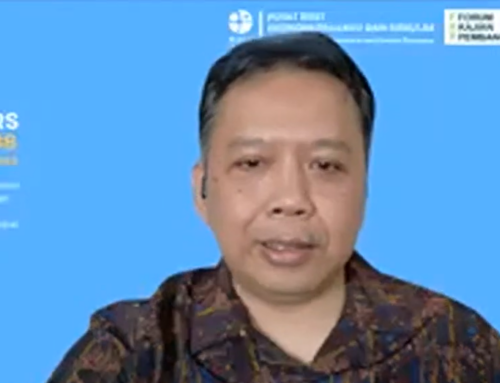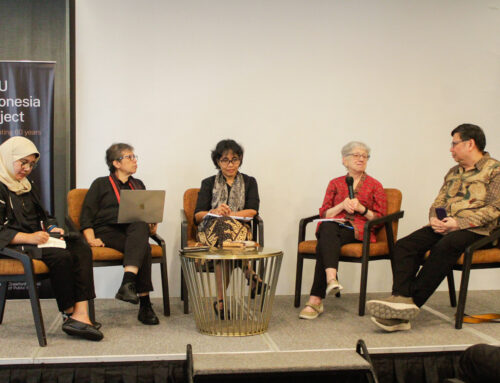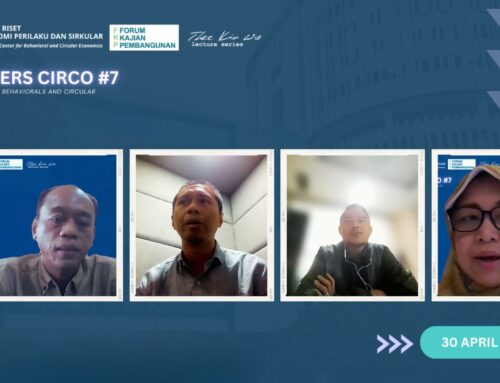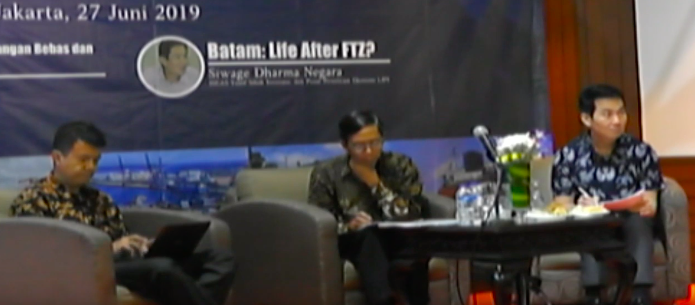 Batam’s strategic location has made it a city with one of the highest growths in Indonesia. However, the city has faced rapid economic slowdowns in recent years. On Thursday, 27 June 2019 the Trade Policy Analysis and Development Agency, Ministry of Trade, hosted an FKP seminar discussing the future of Batam. The speakers were Yudi Fadilah (Trade Policy Analysis and Development Agency, Ministry of Trade) and Siwage Dharma Negara (ISEAS – Yusof Ishak Institute).
Batam’s strategic location has made it a city with one of the highest growths in Indonesia. However, the city has faced rapid economic slowdowns in recent years. On Thursday, 27 June 2019 the Trade Policy Analysis and Development Agency, Ministry of Trade, hosted an FKP seminar discussing the future of Batam. The speakers were Yudi Fadilah (Trade Policy Analysis and Development Agency, Ministry of Trade) and Siwage Dharma Negara (ISEAS – Yusof Ishak Institute).
The first speaker, Yudi Fadilah, presented a brief history of Batam’s status since the reformation era. President B.J. Habibie laid out the foundations for the development of Batam. In 1973, Batam was designated as an industrial development area with the establishment of the Batam Authority. In 2007, the city was then appointed as a Free Trade Area and a Free Port by Law No. 44 in 2007. In 2016 the government decided to change Batam’s status to a Special Economic Zone. These changes in Batam’s status were aimed to attract investors into the region.
Investment in Batam has consistently increased since 2015. However, Batam’s economic growth has fallen significantly from a stable 7% since the early 2000s, to 2.19% in 2017. Some factors that contribute to the economic slowdown include the dualism in the management of the city between the city government and Batam Concession Body. Moreover, other factors such as the substandard infrastructure and labor conflicts over the minimum wage also contribute to the decline in Batam’s competitiveness. This resulted in the relocation of factories by 30% of companies in Batam to countries such as Malaysia and Vietnam which provide better and more conducive investment support.
Batam’s planned transformation into a Special Economic Zone will provide more facilities to the city, such as Agency PPH tax facilities which include investment allowance, accelerated amortization, dividend tax, compensation for losses, and tax holiday. After officially being stipulated as a Special Economic Zone by the President, the Governor can propose the formation of a board consisting of agencies in the local area. As a member of the board, the Ministry of Trade has the duty to delegate the issuance of licenses to the Special Economic Zone administrator in accordance to the needs of the region.
Next, Siwage Dharma Negara presented his study conducted with Francis E. Hutchinson, to be published in the forthcoming edition of the Bulletin of Indonesian Economic (BIES). This paper compares Batam’s key manufacturing branches to their Java and Sumatra counterparts. Moreover, this study also sought to answer whether Batam’s Free Trade Zone (FTZ) status is associated to its improved levels of productivity, output, exports, and employment.
Using BPS’ Survey of Large and Medium-Sized Firms from 2008 to 2015, Siwage found that Batam has a considerably bigger proportion of firms in the electronics, electrical goods, and ship-building industry, in comparison to other industrial cities in Java and Sumatra. Out of several productivity indicators, the study found that the rate of imports in Batam is very high, due to the relatively lax import regulations. However, this indicates the low support from domestic production sectors in Indonesia. The rate of technical progress in Batam is also low in comparison to similar industries in other cities. That aside, Batam’s high wages is compensated by the labors’ high productivity, which indicates a competitive unit labor cost.
Next, to answer whether FTZ status affects firm-level performance, Siwage conducted a series of econometric analyses and found that FTZ status positively contribute to job creation, attracting foreign direct investments (FDI), promoting exports and industrialization, encourage diversification, and access to foreign technologies. Although firms in Batam benefit from FTZ’s fiscal incentives, no substantial export or productivity distinction were present, thus undermining Batam’s potentials. In conclusion, Siwage believes that the government needs to evaluate the design of FTZs and resolve conventional problems that are typical to Indonesia, such as inefficient bureaucracy and custom regulations. Batam also needs to explore new industries while supporting existing ones.
For the complete presentation and Q&A session, please refer to the video and materials provided.
